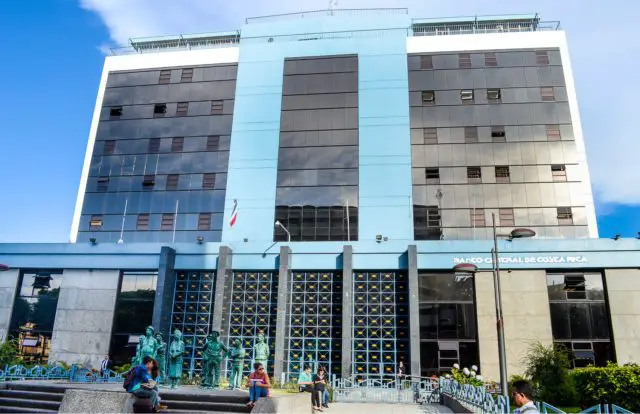Distortions caused by regulatory asymmetries hinder the development of the Costa Rican financial system and, therefore, impede the achievement of efficiency levels that help the country’s economic growth.
To these conclusions comes the latest study prepared by the “Academia de Centroamerica” (Central American Academy), called “Regulatory Asymmetries in the Costa Rican Financial System”. In this regard, economists Miguel Loría and Josué Martínez analyzed the regulatory framework in the Costa Rican financial intermediation system.
According to the researchers, these asymmetries are generated by the application of differentiated rules between financial intermediaries and could adversely affect competition in a market made up of state and private banks such as, for example, the “Banco Popular y de Desarrollo Comunal” (Community Development Bank) savings and credit cooperatives, and mutual . They all have been in existence for several decades and have survived despite the progress made in terms of financial reform.
According to the document, the design and application of the regulations on the financial sector become relevant in order to prevent regulatory aspects from creating asymmetries, that is, generating what is called “the uneven field” in reference to the space in which the different intermediaries compete in the market.
There are always differences…
The State grants an absolute guarantee to users of state banks. Private intermediaries then have to offer their clients higher returns that compensate them for the risk of putting their savings in an entity that does not have a guarantee or insurance. In tax matters, the current regulations introduce important inequalities. State commercial banks of the State and private banks pay a 30% tax on net income. However, other financial intermediaries are exempt from this tax, such as the BPDC and the Housing Mortgage Bank (Banhvi), housing mutuals and cooperatives.

On the other hand, the current law on Income Tax establishes a tax of 8% on the interest paid by state and private banks. This regulation does not apply to Banco Popular, savings and loan cooperatives, to Bahnvi, nor to mutuals.
In the case of minimum legal reserve, differences are also presented. All financial institutions supervised by the General Superintendency of Financial Institutions (Sugef) are subject to a mandatory minimum reserve, which at this moment is 15% on deposits in Colones and in foreign currency.
There is also the requirement of other legal reserves, such as a percentage of the net profits that each bank must maintain to amortize buildings and furniture, depreciation, write-offs and investments, provisions for legal benefits and exchange fluctuations, among others.
The commercial banks of the State are required to maintain a 50% legal reserve, while for private banks and savings and credit cooperatives it is 10%. The Banco Popular is also not subject to this regulation. Also there is the issue of parafiscal charges consisting of mandatory contributions that are deducted from the after-tax profits to finance specific programs managed by public entities such as the National Commission of Education Loans; the National Emergency Commission; the Cooperative Development Institute; the Fund for Financing for Development; the Development Fund for Micro, Small and Medium Enterprises; and an additional contribution to the Disability, Old Age and Death Regime of the Costa Rican Social Security Fund.
Complicated regulation
The General Superintendence of Financial Entities (CRH) is in charge of supervising banks and most entities. For the Academia de Centroamerica researchers, regulating the financial system is not easy, since it affects the interests of diverse groups and it forces us to anticipate the possible reactions of the regulated entity to avoid the effects of the measures that are being adopted.
One of the main arguments to regulate the financial intermediation industry is that intermediaries work with funds that belong to a large number of users, with small and uninformed frequencies. Therefore, savers need a regulatory body that represents and protects them. The International Monetary Fund (IMF) and the Organization for Economic Cooperation and Development (OECD) have drawn attention to these asymmetries and recommend reducing them.
The economist Miguel Loría explained that the viability of achieving significant advances depends fundamentally on the political will to review these distortions. “Following modern regulatory approaches, it would be convenient to determine the costs and benefits of the current provisions, in order to safeguard the interests of users”, he said.
Both the IMF and the OECD consider that there is ample scope to continue the process of improving regulation and supervision of the local financial system. To achieve this goal says the researcher, action is urgent both from the National Supervision Council of the Financial System (and the 4 financial superintendents), the Central Bank, and the Legislative Assembly.
It’s always important to know who you do business so Checkthem.com should be part of any due-diligence!

